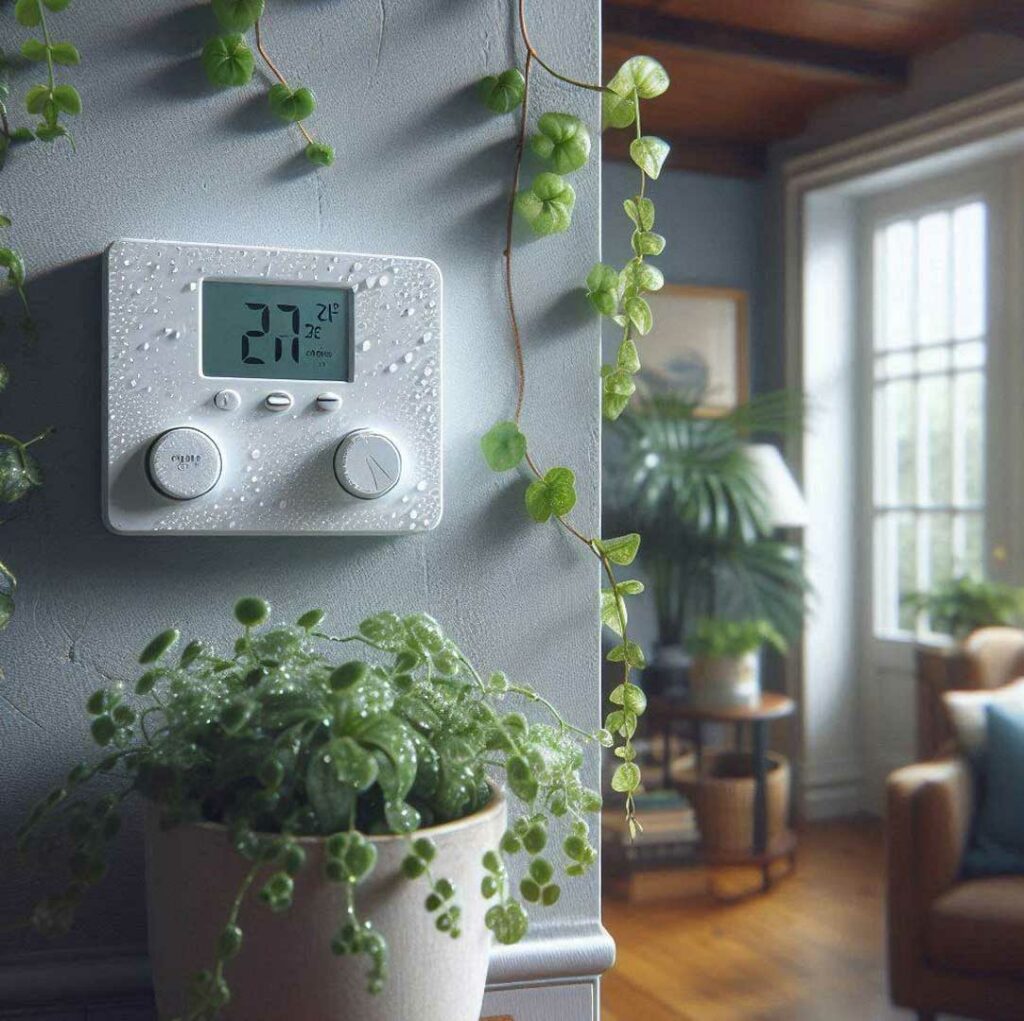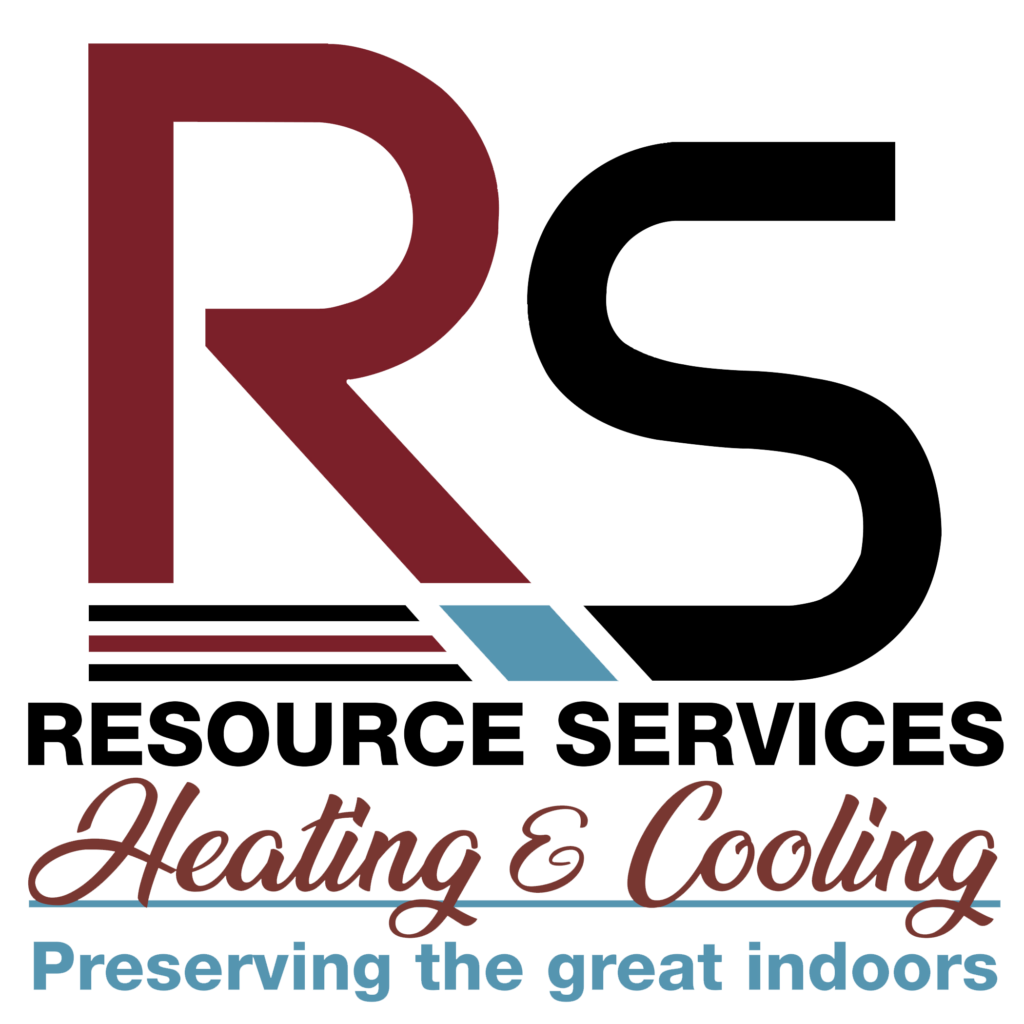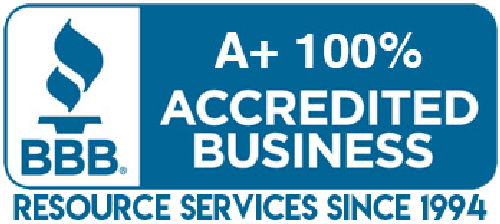What to Do if Your Thermostat Gets Wet
A thermostat is a crucial component in maintaining the comfort of your home or business. It regulates the temperature by controlling the furnace, air conditioning, and sometimes even the ventilation system. However, accidents happen, and your thermostat might get wet due to various reasons. Whether it’s from spraying water on nearby plants, a leaky roof, or a plumbing mishap, water and electronics do not mix well. Here’s a guide on what to do if your thermostat gets wet, how to recognize signs of water damage, and why it’s essential to get it checked by a professional.

How a Thermostat Can Get Wet
Water damage to a thermostat can occur in several ways:
- Spraying Water on Plants: Indoor plants can sometimes be the culprit. Overzealous watering or using a spray bottle too close to the thermostat can lead to accidental water exposure.
- Leaky Roof: If your thermostat is installed near a wall that gets wet due to a leaky roof, water can seep into the device.
- Plumbing Issues: A burst pipe or leaking plumbing fixture near your thermostat can also cause it to get wet.
- Accidents: With pets and children accidents are a constant possibility! Running with a glass of juice or knocking over an aquarium, if your thermostat gets wet, the symptoms of damage can happen immediately, or days or even months later!
Symptoms of a Water-Damaged Thermostat
If your thermostat has been exposed to water, it may exhibit several symptoms indicating damage:
- Inconsistent Temperature Readings: If your thermostat shows fluctuating temperatures that don’t match the actual room temperature, water damage could be the cause.
- Unresponsive Controls: A wet thermostat might become unresponsive or slow to react when you try to adjust the settings.
- Blank Display: Water damage can cause the thermostat display to go blank or flicker.
- Short Cycling: This occurs when your heating or cooling system turns on and off more frequently than usual, often due to faulty thermostat signals.
Importance of Professional Inspection
Water damage to electronic devices like thermostats can lead to more significant issues if not addressed promptly. Here’s why you should have your thermostat checked by a professional if you suspect water damage:
- Safety Concerns: Water and electricity are a dangerous mix. A professional can ensure that there’s no risk of electrical hazards.
- Proper Diagnosis: HVAC professionals have the tools and expertise to accurately diagnose and fix issues caused by water damage.
- Prevent Further Damage: Timely professional intervention can prevent further damage to your HVAC system, saving you money in the long run.
Steps to Take if Your Thermostat Gets Wet
If you find that your thermostat has been exposed to water, follow these steps:
- Turn Off the Power: Immediately turn off the power to your thermostat to prevent any electrical hazards.
- Dry the Thermostat: Use a dry cloth to gently pat the device dry. Avoid using heat sources like hair dryers, as this can cause further damage.
- Inspect for Visible Damage: Look for any signs of water inside the device. If you see water, do not attempt to open the thermostat yourself.
- Call a Professional: Contact an HVAC professional to inspect and, if necessary, repair or replace the thermostat.
Top Ten Tips for Handling a Wet Thermostat
- Turn off the power immediately.
- Dry the exterior gently with a cloth.
- Do not use heat sources to dry the thermostat.
- Check for visible signs of water inside the device.
- Do not attempt to open the thermostat.
- Observe for any unusual behavior or display issues.
- Keep an eye on the temperature readings.
- Contact an HVAC professional promptly.
- Ensure the area around the thermostat is dry.
- Consider relocating plants or repairing leaks to prevent future incidents.
Will My Insurance Cover a Water-Damaged Thermostat?
Determining whether your insurance will cover a water-damaged thermostat involves checking several sources:
- Homeowners Insurance: Many homeowners insurance policies cover sudden and accidental water damage. Review your policy to see if water damage to your thermostat is included. If you’re unsure, contact your insurance agent for clarification.
- Renters Insurance: If you’re renting, your renters insurance might cover personal property damaged by water. Check your policy details or consult with your insurance provider.
- Credit Card Benefits: Some credit cards offer purchase protection, which might cover damage to items bought with that card. Review the benefits of the credit card you used to purchase the thermostat.
- Extended Warranties: If you purchased an extended warranty for your thermostat, it might cover water damage. Check the warranty terms and conditions.
- Manufacturer’s Warranty: Sometimes, the manufacturer’s warranty might cover defects or damage, including water damage, under specific conditions.
Negligence and Improper Repairs: If the water damage resulted from another business’s negligence—such as improper plumbing or roofing— their insurance might cover the damages. Be sure to document the damage thoroughly and reach out to the responsible party to file a claim against their insurance.
It’s always a good idea to document the damage with photos and keep any receipts or proof of purchase handy when filing an insurance claim.
Looking for ways to hide your thermostat to make your room more attractive?
https://rsmech.us/5-ways-to-camouflage-your-thermostat
IMPORTANT:
if you suspect your thermostat has suffered water damage, it’s essential to have it checked out by a professional. At Resource Services HVAC in Des Moines, IA, we’re here to help.
Visit Resource Services HVAC for more information or call us anytime at (515) 454-9147. We’re licensed, bonded, insured, and available 24/7 to assist with all your HVAC needs.
Licensed, Bonded & Insured License #: 50168
Follow us on social media for more tips and tricks from the HVAC pros!

#DesMoines #ILoveIowa #ILoveDesMoines #DesMoinesTemperature #DesMoinesWeather #DesMoinesHVAC #Thermostat #WaterDamage #HomeMaintenance #FurnaceRepair #AirConditioningRepair

